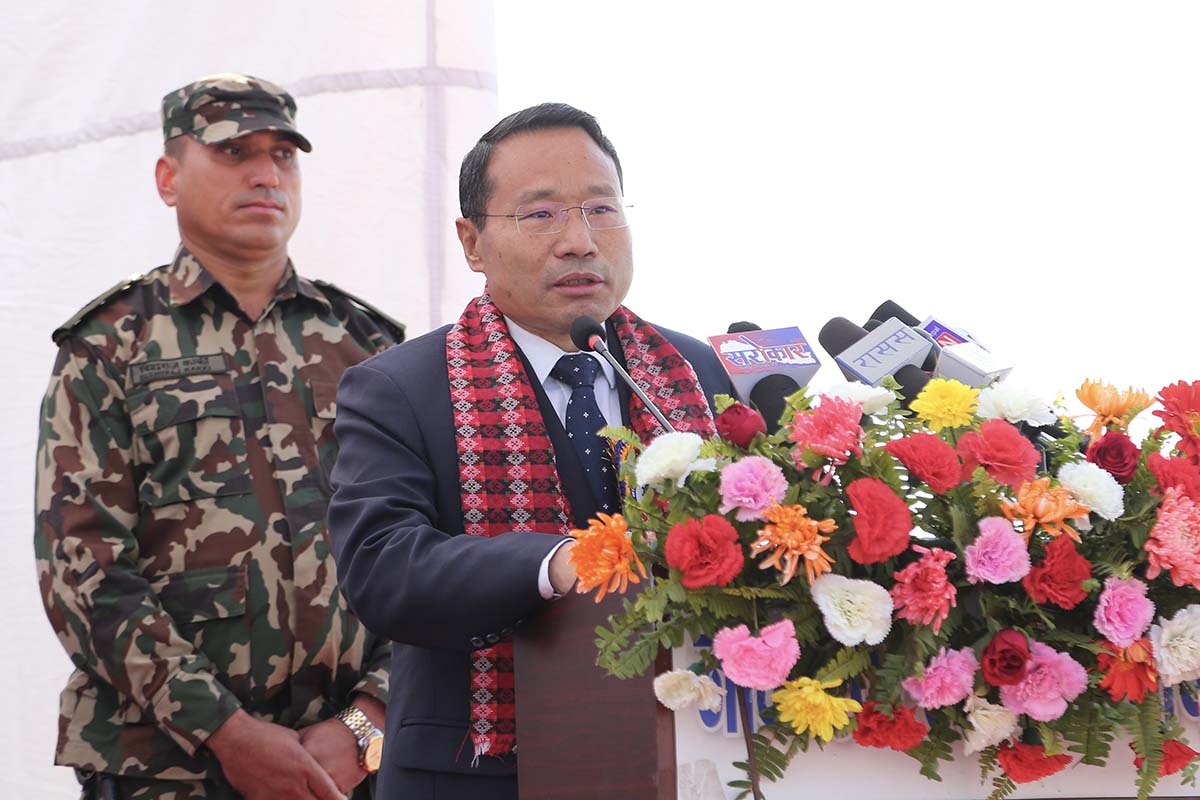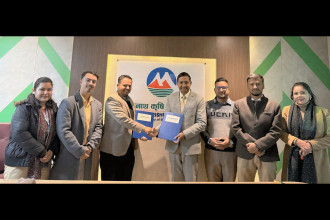
KATHMANDU: Finance Minister Barshaman Pun has asserted that while the country’s economy is somewhat sluggish, it has not yet reached a state of crisis.
Speaking at the 34th anniversary programme of the Citizen Investment Trust (CIT) in Kathmandu today, Finance Minister Pun asserted that the economy is beyond crisis and significant improvement has been observed in the external sector.
However, Minister Pun acknowledged that some structural challenges persist in the public finance sector. He noted that the negative over-publicity suggesting that the country's economy is on the brink of collapse has impacted the market.
"We have foreign currency reserves sufficient to cover over a year's worth of imports of goods and services. The inflow of remittances is excellent. There is ample liquidity in the banks and financial institutions. Investment will also gradually increase now," Minister Pun said.
According to him, the external sector has currently become stronger, countering the criticism some time ago that Nepal's economy was heading towards collapse like Sri Lanka's, as the external sector, especially the balance of payments, appeared bleak.
Minister Pun expressed concern, stating that market sentiment has not improved yet despite the positive economic indicators. He said investment can increase, which will aid in economic growth if there is positive thinking and self-confidence in the market.
On the occasion, he assured that he would continue the positive policies and plans introduced by the former finance minister and adopted by the government prior to this. He added that the strict policies implemented in the past due to economic contraction will be gradually relaxed.
According to him, discussions are being held with various line ministries and agencies about this. Stating that signs of improvement have been seen in the stock market recently, he expressed his belief that it would help stimulate the market.
The Finance Minister emphasised the need for all sides and agencies to be responsible and accountable for facilitating service delivery. "The political leadership has problems. We have felt the need for political sanctification. There is a need for administrative reforms in our public bodies," he reminded.
He urged the CIT management to invest its deposits in the productive sectors, large infrastructure construction projects, and employment generation sector, becoming more professional. Minister Pun called on CIT to contribute to national capital formation by mobilising its deposits in the productive sector to increase productivity and job creation.
CIT Executive Director Parbat Kumar Karki said the CIT has played a crucial role in determining the basis of national capital formation by mobilising savings. According to him, the CIT is carrying out work in a planned manner in expanding its business, profit-oriented investment, and risk management, among other sectors.
Karki claimed that CIT is increasing investment in the infrastructure sector prioritised by the government, making the CIT's operations more technology-friendly, and facilitating service delivery. He further shared that a study has been initiated to connect citizens in foreign employment with the CIT's programmes.
According to him, the net reserves of CIT as of mid-January of the current fiscal year amount to Rs 240.51 billion, while it has invested Rs 235.05 billion during this period.






-1766135582.jpeg)